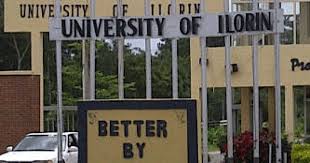The University of Abuja’s Alumni Association and former students leaders has rejected the federal government’s proposal to rename the institution after former Nigerian Head of State, Yakubu Gowon.
In a statement made available to newsmen Monday in Abuja, convener of the association, Habeeb Abdulkadir termed the proposal “a right step in the wrong direction,” citing potential destruction of the university’s legacy, significant social and financial costs, and logistical challenges.
The alumni association acknowledged the intention to honor Yakubu Gowon’s contributions to national unity but argued that renaming the university would negate its branding efforts, complicate administrative processes, and diminish its accumulated prestige.
Instead, the association proposed alternative ways to honor Gowon, such as renaming Eagle Square after him or establishing a new institution or research center in his name.
Students of the University of Abuja have also joined the rejection, holding a peaceful protest at the university’s main gate and initiating an online petition that has garnered thousands of signatures.
Abdulkadir said, “To formally register our displeasure with the proposed name change and propose more fitting and less disruptive ways of achieving the intended benefits, we have submitted letters to the President of the Federal Republic of Nigeria, the respective leaders of the upper and lower legislative chambers (with the attention of their respective Committees on education chairmen), the Minister of Education, and the Executive Secretary of National Universities Commission (NUC).”
The Association explained that the name “University of Abuja” is indeed a national symbol having reflected the institution’s geographical and national identity, which symbolizes a connection to Abuja, the nation’s centre for unity which represents the convergence of Nigeria’s diverse cultures, ethnicities, and histories.
The Alumni urged the government to focus on strengthening the institution rather than renaming it.
Abdulkadir cautioned that changing the name of the institution risks eroding the sense of pride and identity that its’ alumni, students, and staff have built over the years.
He said, “the move to rename the university raises questions about consultation and public involvement in national decisions affecting education. Stakeholders (including students, faculty, staff and alumni) feel excluded in the decision process which we perceive as a top-down imposition.
“Transparency and inclusive dialogue in such matters could have led to a more widely accepted change, or reasons would have been adduced not to go on with the renaming ab initio while minimizing polarization and resistance within academic and public circles. The reverse is completely the case here.”





























